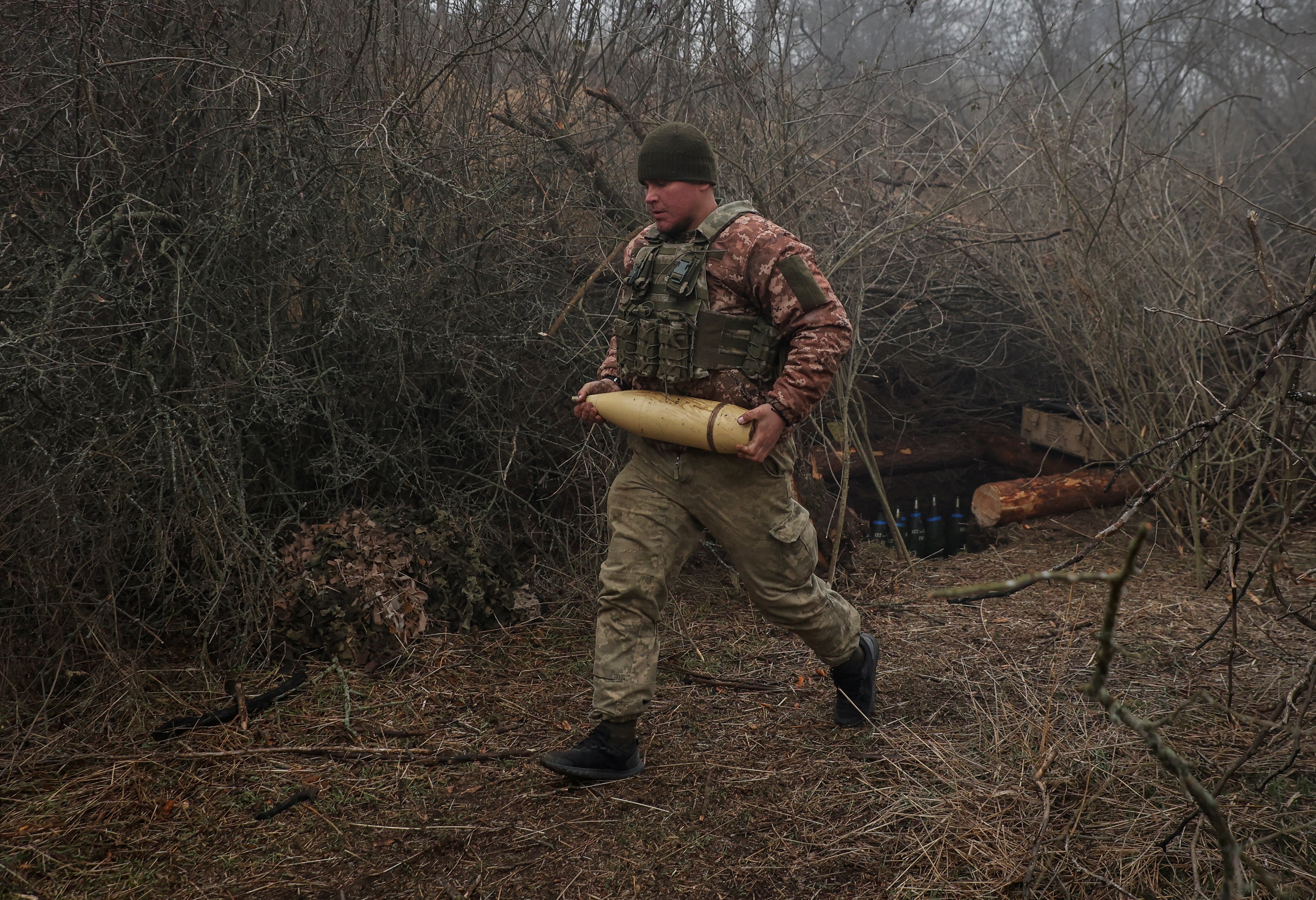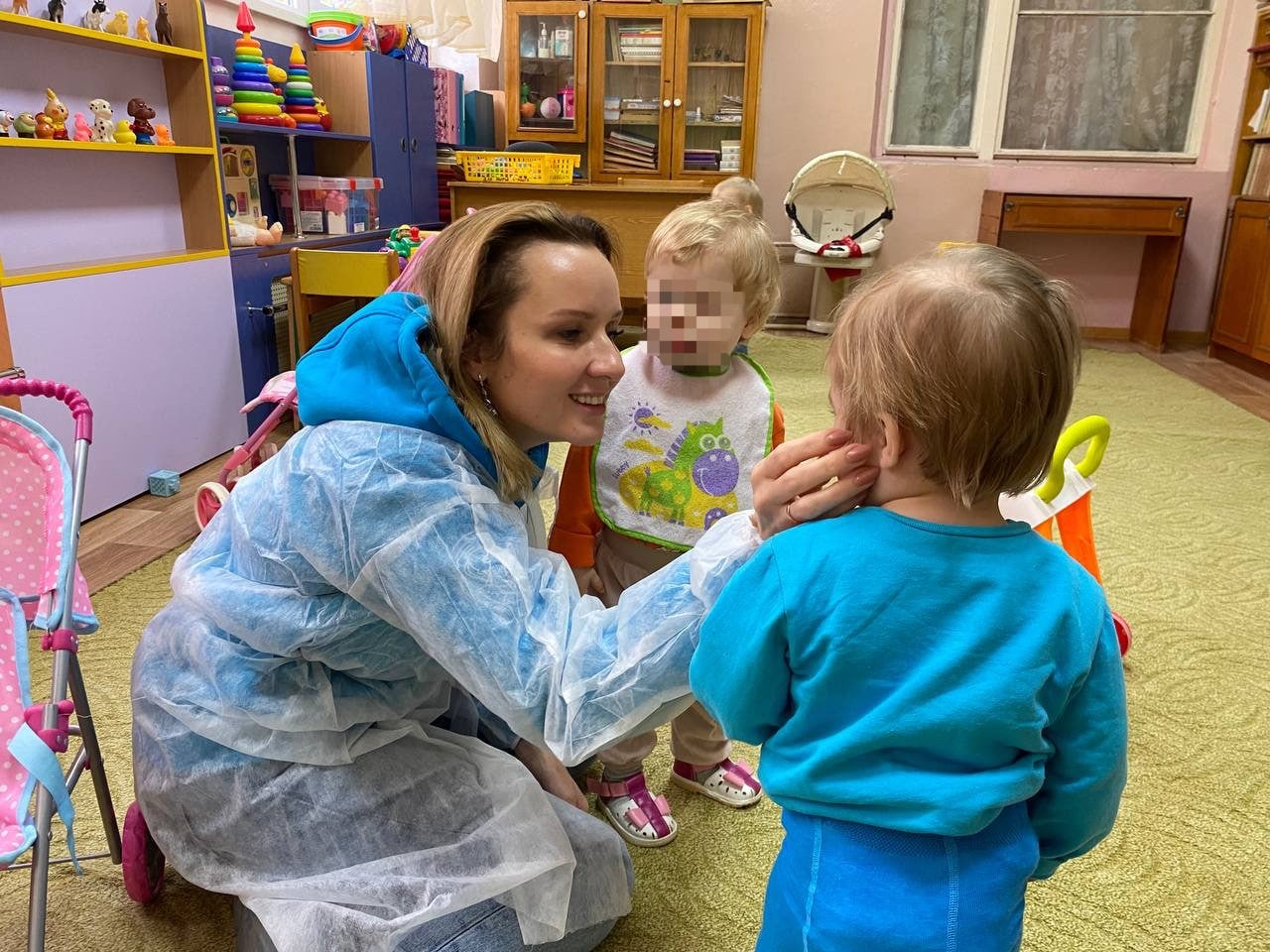It’s horrifying what’s happened to Ukrainians with disabilities during Russia’s war – we cannot abandon them
Comment: Reporting on the kidnapping and abuse of the most vulnerable in Ukrainian society makes one thing clear, writes Bel Trew: in war people with disabilities are the last to be remembered and the first to be left behind


Your support helps us to tell the story
From reproductive rights to climate change to Big Tech, The Independent is on the ground when the story is developing. Whether it's investigating the financials of Elon Musk's pro-Trump PAC or producing our latest documentary, 'The A Word', which shines a light on the American women fighting for reproductive rights, we know how important it is to parse out the facts from the messaging.
At such a critical moment in US history, we need reporters on the ground. Your donation allows us to keep sending journalists to speak to both sides of the story.
The Independent is trusted by Americans across the entire political spectrum. And unlike many other quality news outlets, we choose not to lock Americans out of our reporting and analysis with paywalls. We believe quality journalism should be available to everyone, paid for by those who can afford it.
Your support makes all the difference.Used as human shields, starved or deprived of medicines, tortured, abducted, disappeared. These are the potential crimes that have been committed against people with disabilities since Vladimir Putin invaded Ukraine, according to a new 18-month investigation by The Independent.
That doesn’t even cover what those close to the frontline face with no way of getting to shelter or accessing food and water, under some of the most ferocious bombardments of our time.
As Maksym – a Ukrainian man with a disability who was disappeared into Russia early on in the war – told me, those with disabilities are the last to be remembered and the first to be left behind.
This is not just true of Russia’s invasion of Ukraine, this is true across all conflicts in the world. People with disabilities are disproportionately impacted by violence and similarly disproportionately ignored.
We must and can do more to protect those who are the most vulnerable. There should be a paradigm shift now in actions and how we use international law - and maybe even the wording of international law.
Although technically covered by the 4th Geneva Convention on civilian protection in war, experts say adequate protection of persons with disabilities in conflict has been woefully neglected throughout the world. Take the draft articles for a treaty on crimes against humanity which the United Nations is deliberating right now. It fails to even mention people with disabilities who, as the war in the Ukraine shows, are clearly repeatedly victimised. This is despite the darkest of historical precedents, such as the Nazi’s T4 project to kill those deemed incurably ill, physically or mentally disabled.
In many ways the problems in Ukraine – like many places across the world – start with a lack of data.
The official number of people registered with disabilities in Ukraine is 2.7 million but the United Nations estimates the true number to be more than double that.
Tens of thousands are in institutions across the country where conditions have been described by United Nations experts “appalling”. The epidemic of boarding houses, orphanages and residential homes is a devastating holdover from the Soviet Union where no support was given to families. Instead, they were encouraged to institutionalise their children with intellectual, physical and psychosocial disabilities.
Many have lived their entire lives in these institutions often with little contact with their families, as one advisor to the Ukrainian ministry of health told me “effectively social orphans”.

Disability rights activists – both in Ukraine and abroad – say there are no reliable statistics of exactly how many people are in those facilities or how many facilities there are.
This means when people with disabilities go missing, many of them can’t even be counted let alone found, Maksym told me.
They are also easily targeted by Russians, according to Dr Gerard Quinn, the former UN Special Rapporteur on the rights of those with disabilities, as they are corralled into one space and so easily forcibly moved en masse.
Before war broke out, Ukraine was in the middle of unfurling a slew of reforms to create a “barrier free” accessible country that didn’t rely on these facilities. But that was halted by the conflict. It may remain on hold.
It meant by the time Russian tanks rolled into Ukrainian land, Ukrainian rights groups – like Fight For Right – said there was also a woeful lack of evacuation plans for the many thousands of people in these facilities were in a uniquely vulnerable position. They ended up being engulfed by front lines and then occupation.
This leaves them especially vulnerable to the Russia authorities who have publicly boasted about clearing out entire institutions and taking them to Crimea or Russia as “emergency evacuations”. The Independent has spoken to families still trying to find their loved ones.
Maksym - who was in a Kherson institution for people aged between 19 and 90 years old - found himself among 180 deported against his will to Russia in October 2022. He was able to get to safety because he had access to a mobile phone and enlisted the help of a Ukrainian NGO, Help to Leave, to evacuate him from Russia. He said he feared most for the elderly who may not have family looking for them or the means to get to safety themselves.
A lack of data means this apparent concerted effort by Russia to move people with disabilities - including children - into occupied territory or Russia, has largely passed the world undocumented and unnoticed. The details of many of these evacuations show that people like Maksym were taken by force, lied to or coerced and often kept incommunicado - leaving families back in Ukraine frantically searching.

Within this we have also tracked a worrying trend of people with disabilities, including children and the elderly, being pressured into accepting a Russian passport often in exchange for medical support. This is a trend Ukrainians think is part of trying to force a demographic change in occupied parts of the country through “Russification”, a wider strategy of annexation.
But all these issues are not specific to this conflict.
Armed conflict is ableist, just as it is sexed and gendered, to quote Janet E. Lord, a human rights lawyer, senior research fellow at the Harvard Law School Project on Disability and former advisor and expert to the UN.
And we need to fully recognise that.
The UN took a good step in 2019 introducing a landmark resolution at the Security Council which for the first time expressed that all parties to armed conflict must “take measures, in accordance with applicable international law obligations to protect civilians, including those with disabilities”.
But we need to do more. There is, for example, a gap in war crimes evidence gathering and prosecutions specifically focused on individuals with disabilities, as noted by William Pons, former senior legal advisor to the UN Special Rapporteur on the rights of persons with disabilities.
In Ukraine there has been a huge national and international effort to document the forcible transfer and deportation of children – which has resulted in an International Criminal Court warrant against Putin and his children’s commissioner. The Ukrainian authorities tell me they know of at least 19,500 children who have been removed by Russia.
But no one can tell me how many of these children have disabilities or how many were specifically taken from institutions for people with disabilities. And there are no such efforts - that I can find - to specifically document how many adults with disabilities have been taken, despite their obvious vulnerabilities.
This will only become more important as we have a new generation of people with life-alternating injuries and impairments - unofficial estimates say there could be well over 20,000 new amputees in the country from this war.
Ukraine has vowed to make important changes, including not rebuilding institutions that have been destroyed and to reconstruct cities to make them accessible.
We need to help the Ukrainians authorities do this and to investigate crimes committed against people with disabilities. We need to fundamentally change our attitude and actions across the world.
Feature: We were told we were going on a trip to the seaside – but we were kidnapped by Russia
Join our commenting forum
Join thought-provoking conversations, follow other Independent readers and see their replies
Comments